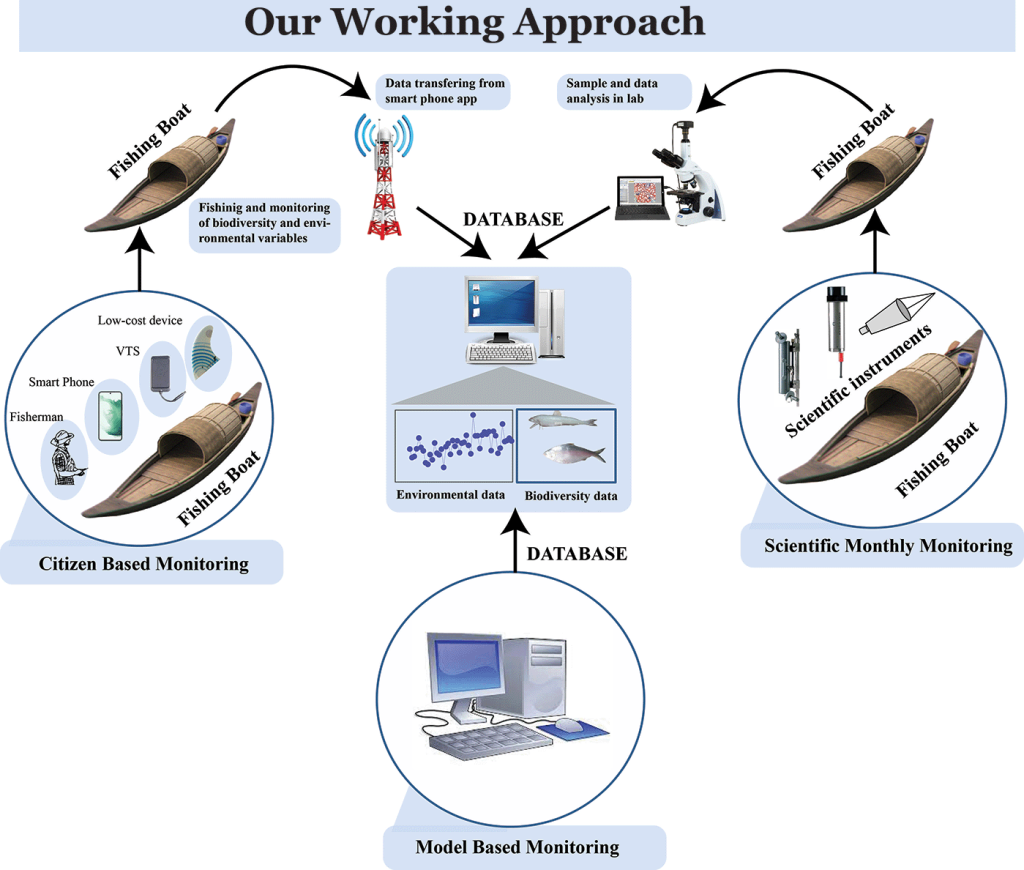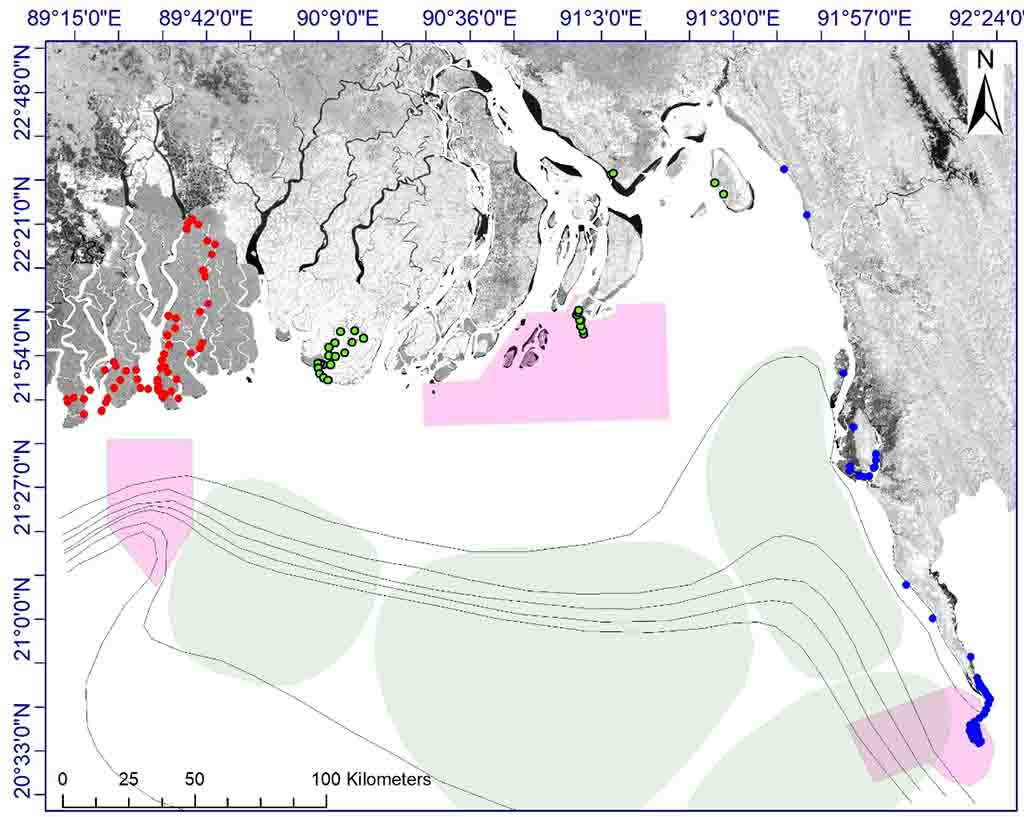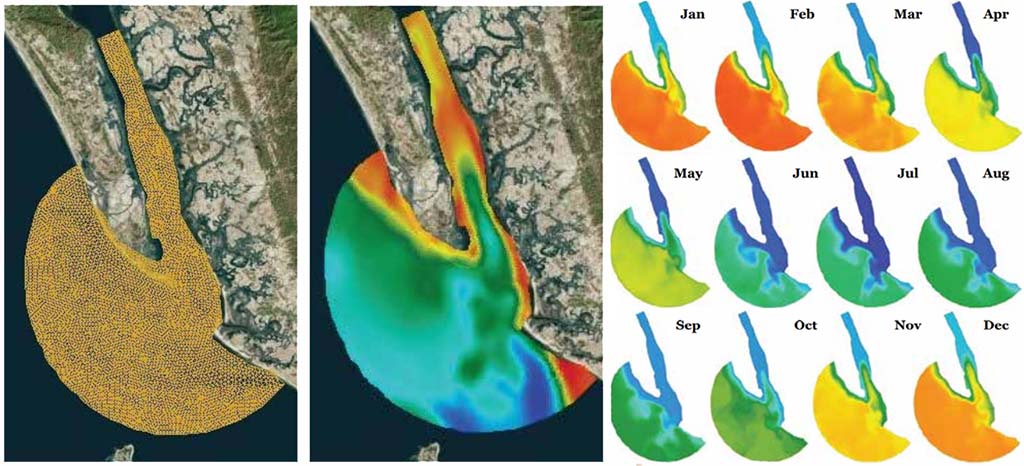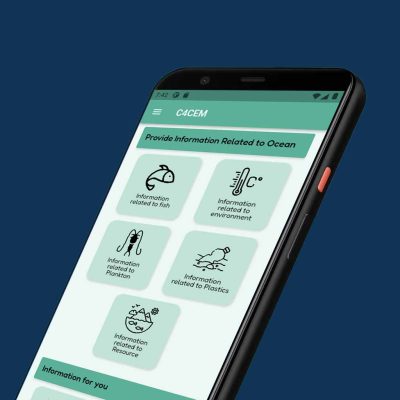At Citizen for Ocean Ecosystem Monitoring, we are committed to collecting high-quality data on coastal phenomena and making it available for research purposes. To achieve this, we have developed a range of approaches and strategies that incorporate the latest technologies and methods.
To collect data on fisheries, water environments, and plankton, we offer training programs to fishermen and students in selected regions. During these training sessions, participants are provided with scientific equipment such as thermometers, CTD sensors, pH meters, and microscopes to help them collect data accurately. Fishermen can use the app to input data about the fish they catch, including species, size, and quantity, as well as photos of the catch. Students can use the microscopes to collect plankton data, and all participants can use the scientific equipment to gather data on water environments, including parameters such as salinity, temperature, dissolved oxygen, transparency, and pH.

To collect data on plastic pollution and ocean resources, we rely on the efforts of citizen scientists. Using the app, individuals can locate sources of pollution or resources and take photos, which are then tagged with coordinates and added to our database.
Once data has been collected, we subject it to a rigorous validation process to ensure its accuracy and reliability. We compare the data to precise, scientifically-collected data, and only include validated data in our final database. This process is critical for ensuring the integrity and usefulness of the data for research purposes.
We are proud to collaborate with leading research institutions, including the Department of Oceanography of Shahjalal University of Science and Technology, Dhaka University, and Olik Limited. These partnerships help us to expand the reach and impact of our platform, and ensure that our data is used to its full potential.
Our collected data is made available to researchers for the purposes of advancing scientific understanding and protecting coastal ecosystems. By using the app, individuals can play an active role in the scientific process and make a meaningful contribution to the protection of our oceans
We conducts monthly monitoring in the coastal area of Bangladesh using advanced scientific equipment such as CTD, Nano CTD, Algal torch, Plankton net and Niskin bottle to collect a wide range of data on temperature, salinity, dissolved oxygen, chlorophyll, turbidity, and plankton. These methods allow us to gather comprehensive data on the health and conditions of the coastal environment, which supports conservation and management efforts to protect these areas. The data collected is also available to researchers and scientists to further understand the coastal ecosystem and its health, helping in the protection and enhancement of coastal environments.

We also conducts model-based monitoring to understand the regular changes in environmental conditions in the coastal area of Bangladesh. This type of monitoring allows us to gain a better understanding of how environmental conditions change over time, and how they are affected by factors such as weather patterns and human activity.
We use the Delf3D model, a powerful tool for simulating estuarine environmental conditions. This model allows us to predict the changes in environmental conditions such as temperature, salinity, and dissolved oxygen levels. By comparing the modeled data to the observed data, we can improve our understanding of the coastal ecosystem and identify areas that may be particularly vulnerable to changes in environmental conditions.
The goal of model based monitoring is to provide a detailed understanding of the coastal ecosystem and its changes, this is important for coastal zone management, as it allows for early detection of potential issues and for the development of effective management strategies. We are always working to improve the model and expand its capabilities to better understand and conserve the coastal ecosystem.

Through our Citizen Based Monitoring program, we provide low-cost scientific instruments to local fishermen and train them on how to use them. These instruments, such as temperature and salinity sensors, allow the fishermen to collect valuable data on the conditions of the coastal environment while they are out at sea.
The data collected by the fishermen is then uploaded through the app. It can be accessed by researchers, scientists and other interested parties. This allows for a more comprehensive understanding of the coastal ecosystem, and helps to identify areas that may be vulnerable to changes in environmental conditions.
In addition to data collection, we also plan to expand our services to the local fishermen. Soon we will be providing information on potential fishing zones and cyclone alerts so that they can prepare and protect themselves better.

We utilizes satellite-based monitoring to gain a more comprehensive understanding of the coastal environment. By analyzing satellite data, we are able to predict the amount of chlorophyll in the sea, which can indicate the presence of phytoplankton, an important food source for fish. Based on this information, we can then predict potential fishing zones for local fishermen.
We also provide services for fishermen by providing them with information on extreme weather forecasting. This is done through the use of a storm surge model, which can predict the potential impact of severe weather events such as cyclones on the coastal area. This information can be used by fishermen to prepare and protect themselves, as well as their boats and equipment.

Associate Professor
Department of Oceanography,
Shahjalal University of Science and Technology, Sylhet
Phone: 01710417753, 01312417753
Email: [email protected]
